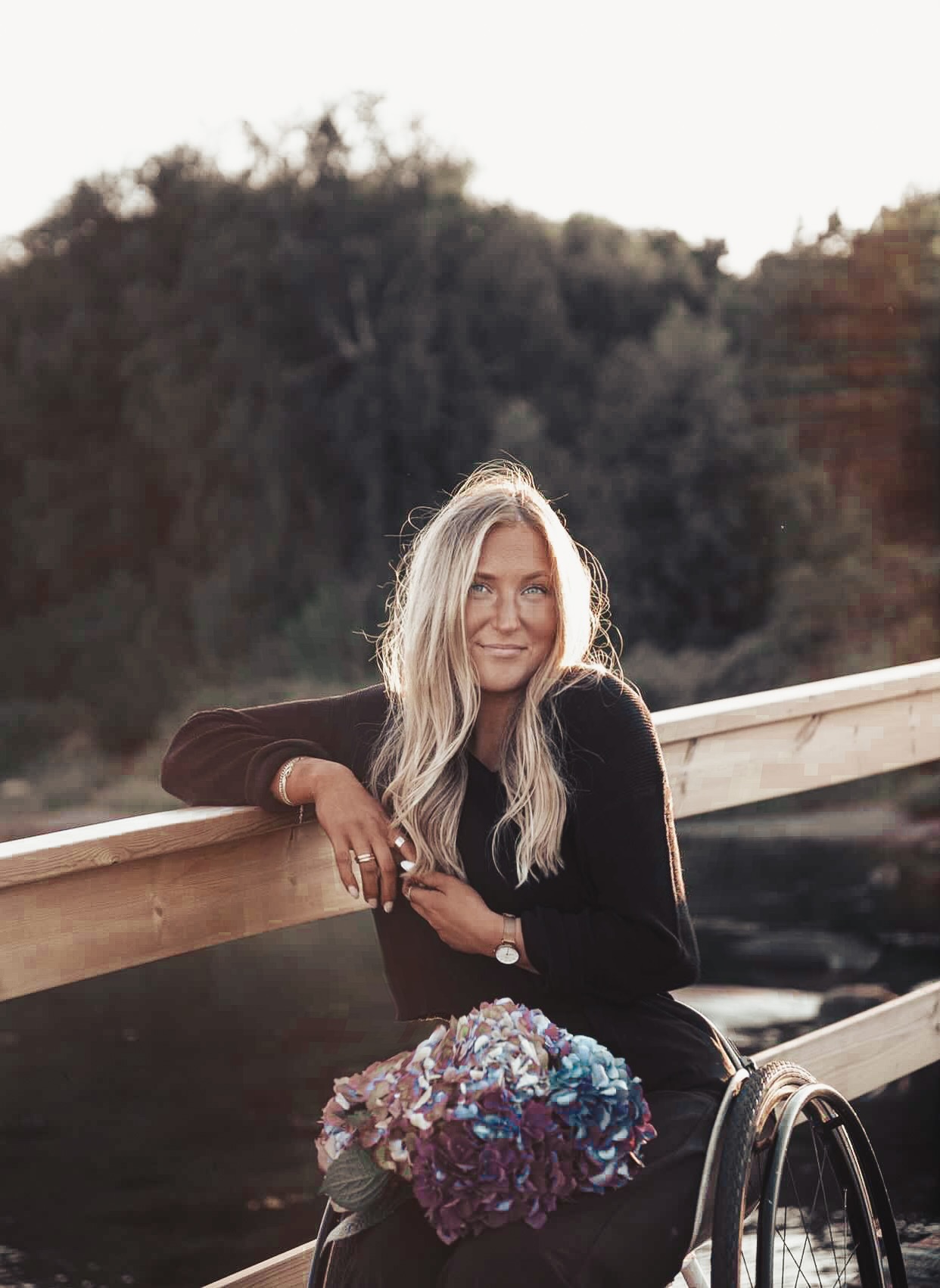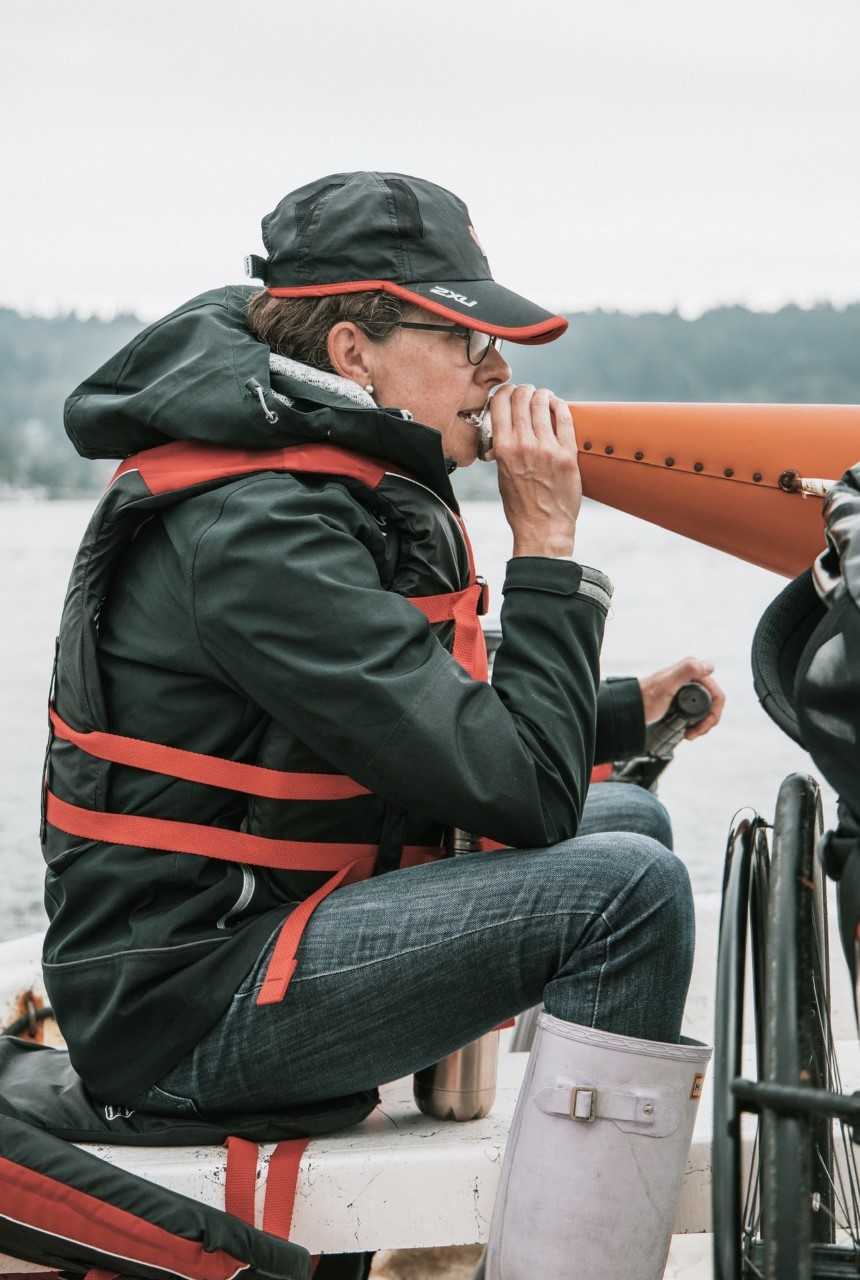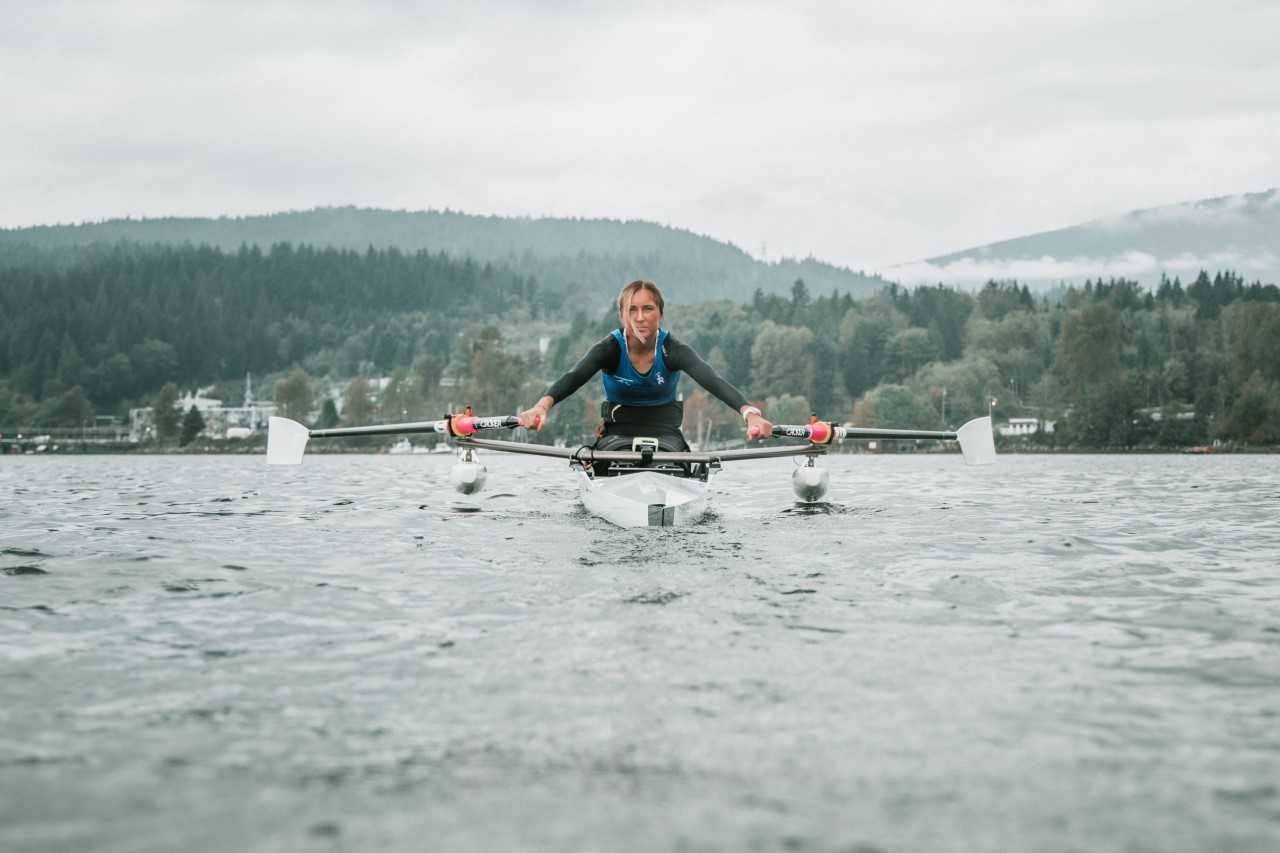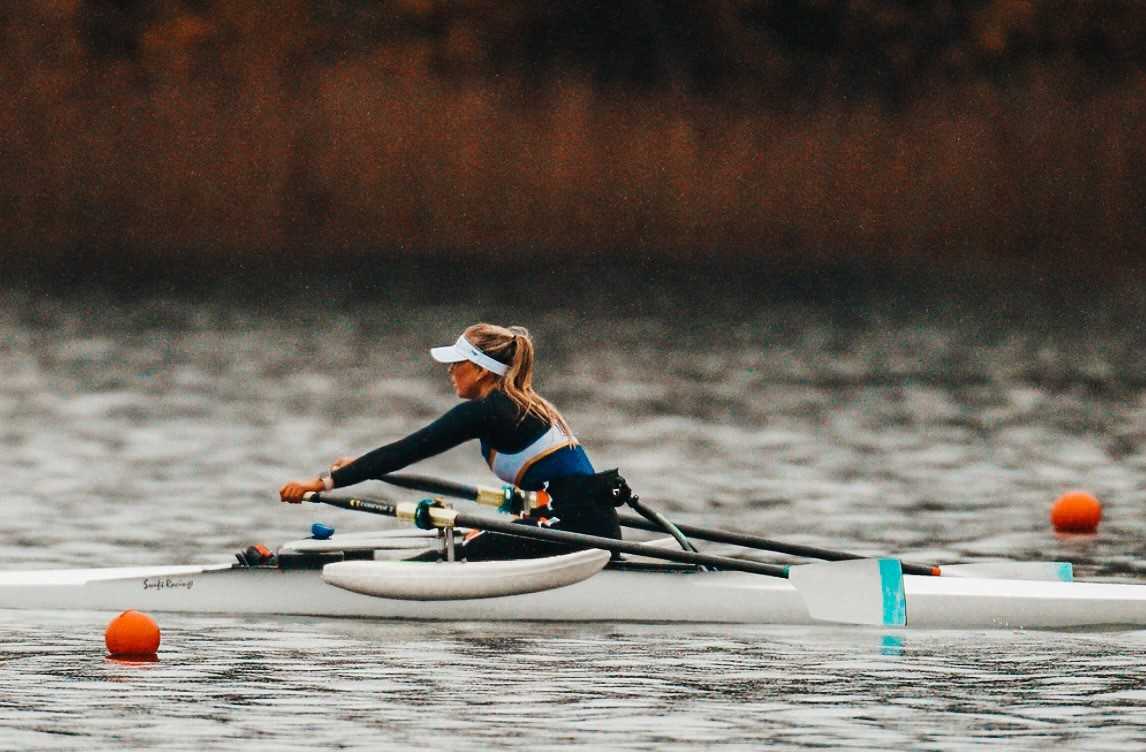 Ebba Einarsson is a 2nd-year international Kinesiology student from Sweden and is an elite para-rower. Her interest in kinesiology was sparked by her own athletic career and interest in training. She wanted to learn how movement and nutrition impact health, as well as how to optimize training to improve her physical abilities and reach her goals. Since she has begun her studies at KIN, Ebba says that “in each course, I find that I can put myself into the material and use it for direct understanding, improvement, and development.”
Ebba Einarsson is a 2nd-year international Kinesiology student from Sweden and is an elite para-rower. Her interest in kinesiology was sparked by her own athletic career and interest in training. She wanted to learn how movement and nutrition impact health, as well as how to optimize training to improve her physical abilities and reach her goals. Since she has begun her studies at KIN, Ebba says that “in each course, I find that I can put myself into the material and use it for direct understanding, improvement, and development.”
In 2019, Ebba first came to Vancouver to train with her coach Jill Würflinger, and upon touring the UBC campus, she decided to apply. She was admitted to the program in 2020, at the onset of the COVID-19 pandemic. “Not exactly how you want the first year of your university experience to be!” exclaims Ebba. “The hardest adjustment for me was the time difference as I was studying from Sweden. However, something positive about online school was that it allowed a more flexible schedule for my training. Now, I am super happy to finally be on campus!”
Following her father’s passion for the sport, she started to row at the young age of 8. By the time she was 14 years old, Einarsson was rowing as an able-bodied sculler for the Swedish junior national team where she competed internationally. She won gold, silver, and bronze at the Nordic Championships and the Baltic Cup, and placed in the top two spots at the Swedish championships for both the junior and senior levels.
At age 17, Ebba took a gold medal at the Swedish National Sprint Championships in the quadruple sculls. A week after the championships, she had a sudden bleed in her spinal cord from an extremely rare condition. And, states Ebba, “from one night to the next, I was left paralyzed from my waist down. But that didn’t stop my love for rowing.” A short nine months after this life-changing event, the ever-determined athlete was back in the boat, this time as a para-rower in the singles scull, competing at what was the year’s first international competition on the calendar for para-rowing: the Gavirate Para World Cup event, in Italy. The race was preceded by a week at the World Rowing Federation’s (FISA) training camp for developing para-athletes. It was here she met World Rowing Para Development Coach & Coach Developer, and UBC Arts Alum (BA 92, MA 95, Varsity Rowing Team alum), Jill Würflinger, who is also the full-time Director of the Rick Hansen Foundation School Program and who serves as Ebba’s coach today.
Ebba happily recalls their meeting: “This was my second time back in the boat after my injury and my first international competition as a para-athlete. Although I already knew the sport with my heart, I was a bit lost in the para environment. Jill saw me there and was there for me. We kept in contact after the competition. She really works as a developer of high-performance para coaches, but as there is a lack of coaches in Sweden, she decided to take me on as my coach. Our athlete-coach relationship has further developed into a really strong relationship as she took me in, and I lived with her family in Port Moody. Jill has helped me go places, shown me opportunities, and helped me to experience things I probably wouldn’t have had without her. She is an amazing coach both in terms of training and technique, but what I appreciate and admire is that she sees the person in me and not just the athlete.”
Since she began her studies at UBC, Ebba has been doing her on-water training with Jill at the Inlet Rowing Club in Port Moody. This past fall, Ebba was very proud to have been included to represent UBC at the National Rowing Championship with the Varsity Women’s team. “I am super happy and proud to have competed and to have shown my development with this competition. It’s an unbeatable feeling to see the black on white improvement from all the hard work you are doing every day. However,” comments Ebba, “we are still trying to see if there’s a possibility to truly join the varsity team in terms of inclusion and access to training facilities.”
 We contacted Jill Würflinger to ask her about what it meant for a para-athlete to be included in the University Rowing Championship. She exclaimed, “We are grateful to Samantha Heron, Rowing Canada’s Next Gen Para Development coach and UBC Varsity Women’s Coach Craig Pond, for their support as they made it possible for para-rowers to take part in the Western University Rowing Championships for the first time ever at Burnaby Lake on October 2, 2021. Inclusion doesn’t mean you just build a ramp; it means you are really included and get a place on the schedule. And they did this for us. It is in Victoria that Ebba won her first-ever gold medal as a para rower in the November 12-13 Canadian National Rowing Championships, in the PR1 women’s single category, which is phenomenal. Elk Lake is where I raced as a member of the men’s and women’s varsity rowing team while at UBC, so the fact that Ebba did it in a UBC Varsity Rowing uniform makes my heart explode with happiness.”
We contacted Jill Würflinger to ask her about what it meant for a para-athlete to be included in the University Rowing Championship. She exclaimed, “We are grateful to Samantha Heron, Rowing Canada’s Next Gen Para Development coach and UBC Varsity Women’s Coach Craig Pond, for their support as they made it possible for para-rowers to take part in the Western University Rowing Championships for the first time ever at Burnaby Lake on October 2, 2021. Inclusion doesn’t mean you just build a ramp; it means you are really included and get a place on the schedule. And they did this for us. It is in Victoria that Ebba won her first-ever gold medal as a para rower in the November 12-13 Canadian National Rowing Championships, in the PR1 women’s single category, which is phenomenal. Elk Lake is where I raced as a member of the men’s and women’s varsity rowing team while at UBC, so the fact that Ebba did it in a UBC Varsity Rowing uniform makes my heart explode with happiness.”
When asked where issues of inclusion fit in her life, Ebba is clear: “I think when the question of “inclusion” first comes to mind, people think of it in terms of accessibility in buildings and in the environment. But the biggest challenge I have is how people view me. There are two options, either the first thing you see is my chair, or the first thing you see is actually me. How people view me was/is an important thing. Luckily, I had my friends back home who knew me as a person before, which made it easier to keep seeing me as the same as before. However, coming here to UBC where no one knows me is for sure hard. This is the only ‘Ebba’ they know. People should not be afraid to treat me like they do everyone else. I am not my disability!”

